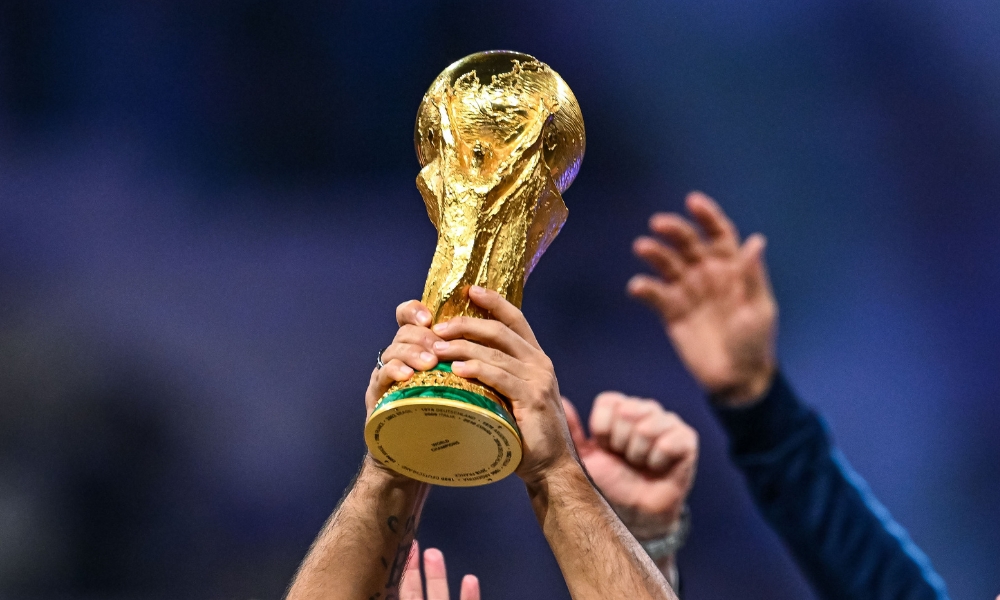The FIFA World Cup final is one of the most anticipated sporting events in the world, where the best footballing nations battle for ultimate glory. Over the decades, these matches have produced unforgettable moments, dramatic twists, and legendary performances that have shaped the history of the sport. From last-minute goals to nerve-wracking penalty shootouts, some finals have left an indelible mark on fans worldwide. But which of these matches stand out as the most memorable?
Why Was the 1950 World Cup Final So Unique?
The 1950 tournament in Brazil was unlike any other, as it did not feature a traditional knockout final. Instead, a final group stage determined the winner, with the decisive match played between Brazil and Uruguay at the Maracanã Stadium. Over 170,000 spectators, the largest recorded attendance for a football match, packed into the stadium expecting a Brazilian victory.
Brazil took the lead early in the second half, and the celebrations began prematurely. However, Uruguay stunned the hosts by scoring twice, securing a 2-1 win in what became known as the “Maracanazo”. This shocking upset remains one of football’s greatest underdog stories and is still a painful memory for Brazilian fans.
How Did the 1966 Final Capture the Spirit of Football?
For England supporters, the 1966 World Cup final at Wembley Stadium is the pinnacle of national footballing history. Facing West Germany, England took the lead, only to see their opponents equalise in the dying moments of normal time. Extra time brought the most controversial moment of the match: Geoff Hurst’s second goal, which bounced down off the crossbar and was awarded by the referee despite debate over whether it had crossed the line.
Hurst then completed his hat-trick, sealing a 4-2 win for England. The famous commentary line – “They think it’s all over… it is now!” – perfectly captured the moment and cemented the match as a defining chapter in British sporting culture.
What Made the 1970 Final a Showcase of Pure Football?
The 1970 final in Mexico City is often considered the finest display of attacking football in World Cup history. Brazil, led by the legendary Pelé, faced Italy in a game that demonstrated technical brilliance and creative flair. Pelé opened the scoring with a powerful header, and although Italy equalised, Brazil’s second-half performance was nothing short of masterful.
The match ended 4-1, with Carlos Alberto’s stunning final goal – a sweeping team move finished with a thunderous strike – becoming one of the most replayed moments in football history. This victory earned Brazil their third World Cup, allowing them to keep the Jules Rimet Trophy permanently.
How Did the 1986 Final Become the Story of One Man?
The 1986 final in Mexico is remembered for the influence of Diego Maradona, who had already made headlines in the tournament with his infamous “Hand of God” goal and his mesmerising solo effort against England in the quarter-finals. Argentina faced West Germany in a match that reflected both tactical discipline and moments of pure genius.
Argentina took a 2-0 lead, only for West Germany to fight back to 2-2. In the final minutes, Maradona provided a perfectly weighted pass to Jorge Burruchaga, who scored the winning goal. The 3-2 victory was a fitting conclusion to Maradona’s tournament and solidified his status as one of football’s all-time greats.
Why Is the 1994 Final Remembered for Its Tension?
The 1994 World Cup in the United States ended with one of the most tense finals ever. Brazil and Italy, two giants of world football, played out a cagey, goalless draw in the sweltering heat of Pasadena. With no goals after extra time, the match went to penalties – the first time a World Cup final had been decided in this way.
Italian forward Roberto Baggio, one of the stars of the tournament, stepped up for the decisive penalty but sent the ball over the bar, handing Brazil their fourth World Cup title. The image of Baggio’s anguish remains one of the most iconic moments in World Cup history.
How Did France Announce Themselves on the World Stage in 1998?
Hosting the tournament for the first time since 1938, France reached the 1998 final in Paris to face the reigning champions Brazil. Zinedine Zidane became the hero of the night, scoring two first-half headers from corners. Brazil, missing star forward Ronaldo at his best due to a pre-match health scare, struggled to respond.
Emmanuel Petit’s stoppage-time goal sealed a 3-0 victory, and France celebrated their first-ever World Cup triumph. The match marked the arrival of a new football powerhouse and remains a moment of immense national pride.
Why Was the 2006 Final Both Thrilling and Controversial?
The 2006 final between Italy and France in Berlin is remembered as much for its drama as for the quality of play. France took an early lead through a Zidane penalty, but Italy equalised with a powerful header from Marco Materazzi. The match went to extra time, but the turning point came when Zidane was sent off for headbutting Materazzi in one of football’s most shocking moments.
The game ended 1-1, and Italy triumphed 5-3 on penalties. While the victory gave Italy their fourth World Cup, the match is equally remembered for the incident that marked Zidane’s final professional appearance.
How Did the 2014 Final Showcase Modern Football?
The 2014 final in Brazil saw Germany face Argentina in a tightly contested match. Both teams had chances, but it was substitute Mario Götze who made the difference in extra time. Controlling André Schürrle’s cross with his chest, Götze volleyed the ball past the goalkeeper to secure Germany’s fourth World Cup title.
The victory was particularly significant as Germany became the first European team to win a World Cup in South America, highlighting the increasingly global nature of football excellence.
Why Is the 2022 Final Considered One of the Greatest Ever?
The 2022 final in Qatar has already been hailed as one of the greatest matches in World Cup history. Defending champions France faced Argentina in a game filled with drama, momentum swings, and individual brilliance. Lionel Messi and Kylian Mbappé took centre stage, with Messi scoring twice and Mbappé completing a hat-trick.
The match ended 3-3 after extra time, leading to a nerve-racking penalty shootout that Argentina won 4-2. It was a fitting conclusion to Messi’s World Cup journey and a match that will be talked about for decades.
Could the 2026 World Cup Produce Another Classic Final?
With the next tournament set to be co-hosted across North America, anticipation is already building. The USA World Cup 2026 and Canada FIFA World Cup will introduce a new format with 48 teams, potentially creating even more opportunities for dramatic showdowns. The expanded tournament, larger fan base, and varied host cities could produce a final to rival the greatest in history.
Fans will be eager to see whether football’s next legends will emerge on this stage, adding to the rich tapestry of unforgettable finals. If history is any guide, the 2026 edition could deliver moments that echo for generations.




